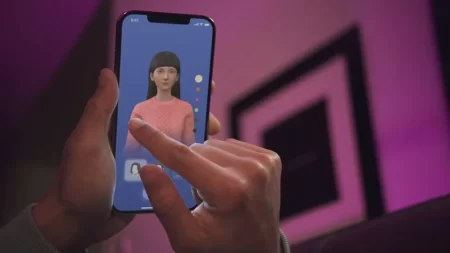Would you share your deepest anxiety with Alexa through chatbots ? Or maybe ask Siri for some emotional support after a particularly stressful day?
We are increasingly turning to chatbots on smart speakers or websites and apps to answer questions. And as these systems, powered by artificial intelligence (AI) software, become ever more sophisticated, they are starting to provide pretty decent, detailed answers.
But will such chatbots ever be human-like enough to become effective therapists?
Computer programmer Eugenia Kuyda is the founder of Replika, a US chatbot app that says it offers users an “AI companion who cares, always here to listen and talk, always on your side”.
Launched in 2017, it now has more than two million active users. Each has a chatbot or “replika” unique to them, as the AI learns from their conversations. Users can also design their own cartoon avatar for their chatbot.
Ms Kuyda says that people using the app range from autistic children who turn to it as a way to “warm up before human interactions”, to adults who are simply lonely and need a friend.
Others are said to use Replika to practise for job interviews, to talk about politics, or even as a marriage counsellor.
And while the app is designed primarily to be a friend or companion, it also claims it can help benefit your mental health, such as by enabling users to “build better habits and reduce anxiety”.
Around the world there are almost one billion people with a mental disorder, according to the World Health Organization (WHO). That is more than one person out of every 10.
The WHO adds that “just a small fraction of people in need have access to effective, affordable and quality mental health care”. Would you share your deepest anxiety with Alexa through chatbots?
And while anyone with a concern for either his or herself, or a relative, should go to a medical professional in the first place, the growth of chatbot mental health therapists may offer a great many people some welcome support.
Dr Paul Marsden, a member of the British Psychological Society, says apps that aim to improve your mental wellbeing can help, but only if you find the right one, and then only in a limited way.
“When I looked, there were 300 apps just for anxiety so how are you supposed to know which one to use? “They should only be seen as a supplement to in-person therapy. The consensus is that apps don’t replace human therapy.”
Yet at the same time, Dr Marsden says he is excited about the power of AI to make therapeutic chatbots more effective. “Mental health support is based on talking therapy, and talking is what chatbots do,” he says.
Dr Marsden highlights the fact that leading AI chatbot firms, such as OpenAI, the company behind the recent headline-grabbing ChatGPT, are opening up their technology to others.
He says this is enabling mental health apps to use the best AI “with its vast knowledge, increasing reasoning ability, and proficient communication skills” to power their chatbots. Replika is one such provider that already uses OpenAI’s technology.
Read more: Top 10 best ChatGPT chrome extension
